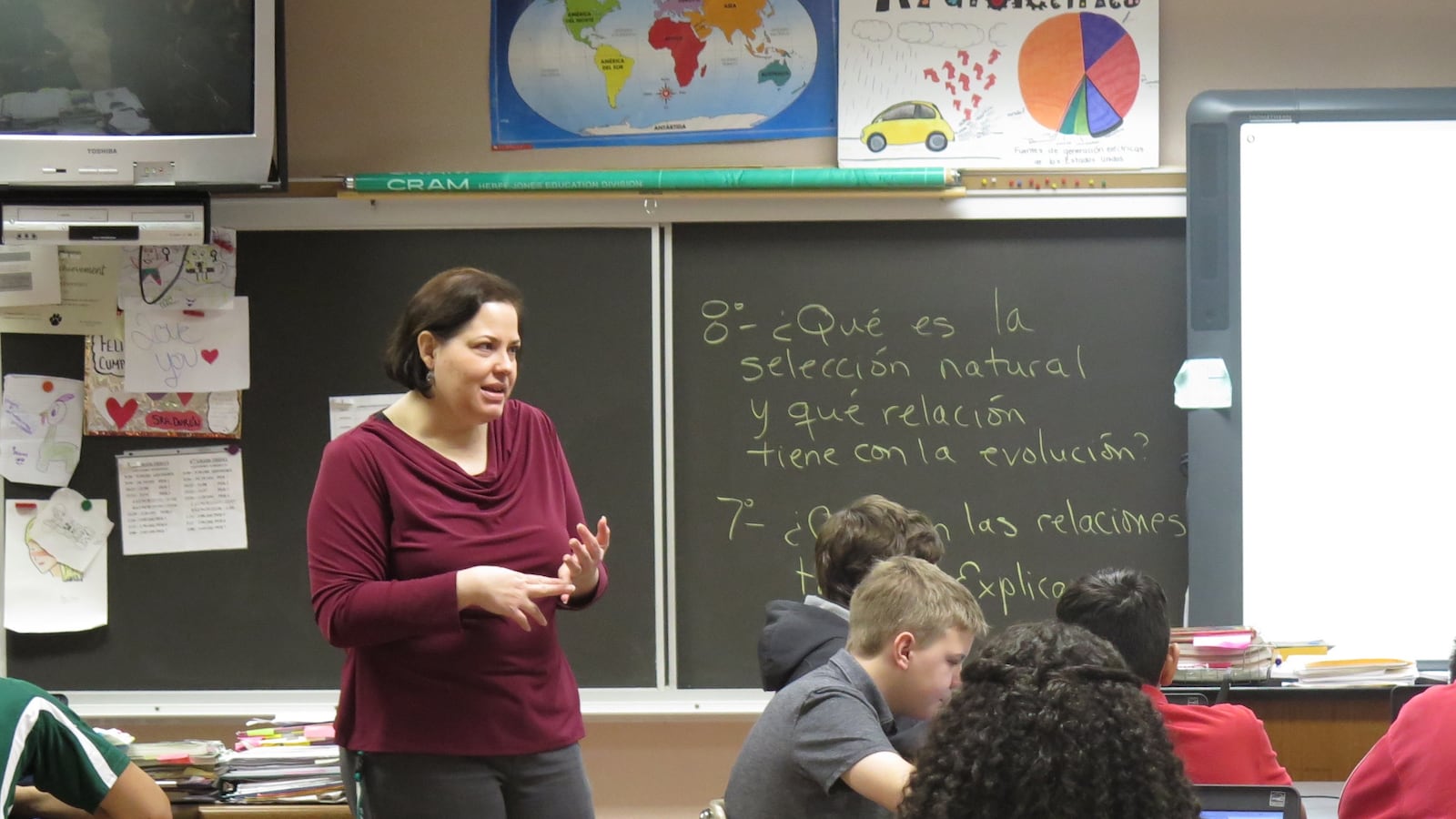Mary Beth Borkowski said her students at North Central High School have a lot to consider when it comes to choosing their careers — how much prestige do they hope to achieve? What salary do they need to make to support themselves? How much will their education cost?
More and more, she said, the answers to those questions are leading those high-achieving kids away from wanting to be teachers.
“I have found that the top scholars that I am actively recruiting to come back and teach at our school are uninterested because of the money,” said Mary Beth Borkowski, an English teacher at North Central High School in Washington Township. “And they would not be able to have the lifestyle they want or support themselves.”
A 49-person panel created by state Superintendent Glenda Ritz to study the issue of recruiting and retaining teachers met for the second time today to discuss those issues.
Ritz and other educators say there is an urgent need to address the problem. The Indiana Department of Education reported a decline in the number of educators who received first-time teacher licenses over the past six years.
Yet many of the ideas presented in the meeting as barriers to new teachers entering the field aren’t exactly new — teachers have long bemoaned negative public perceptions of teaching, pressure to teach to standardized tests and salaries so low that they require some teachers to take a second job.
Since last year, 21 percent fewer educators received first-time licenses. The drop is 33 percent since 2009-10 — 3,802 licenses were issued in 2014-15, down from 5,685 in 2009-10.
Because the data includes educators who aren’t classroom teachers, as well as new 2015 numbers, the report differs from numbers the department cited earlier showing an 18.5 percent decline in teachers between 2009-10 and 2013-14.
“This is looking at all educators,” education department spokesman Daniel Altman said. “The thought is as we’re looking at this, let’s be more comprehensive so we understand what the issue is and exactly what the numbers are.”
According to research from Richard Ingersoll, a researcher at the University of Pennsylvania, first-time teachers make up only one-fifth of new teachers entering classrooms each year.
Carey Dahncke, director of the Christel House Academies charter school network, said college graduates and brand-new teachers aren’t the only ones who should be reached out to.
“It’s not just getting people in the early stages of their career,” he said.
Plus, using college data to determine a teacher shortage can be complicated. While some colleges have seen the number of students wanting to study teaching decline, others have fallen victim to clarifications in federal data reporting requirements.
John Jacobson, dean of Ball State University’s teachers college, said one group in particular has been missing from discussions about what might be causing fewer kids to want to pursue teaching careers: the students themselves.
“I think the biggest challenge is we don’t know … we haven’t done the research to find out why,” Jacobson said at today’s meeting. “We haven’t asked our high school students about their current paths.”
Jacobson was skeptical that anecdotes were enough to support the panel’s recommendations to legislators, expected by the end of this year. Department officials said further data analysis and focus groups would occur over the coming months.
“We are in schools and universities, and we share our opinions with each other,” Jacobson said of his fellow educators. “But are they urban legends or are they facts?”

